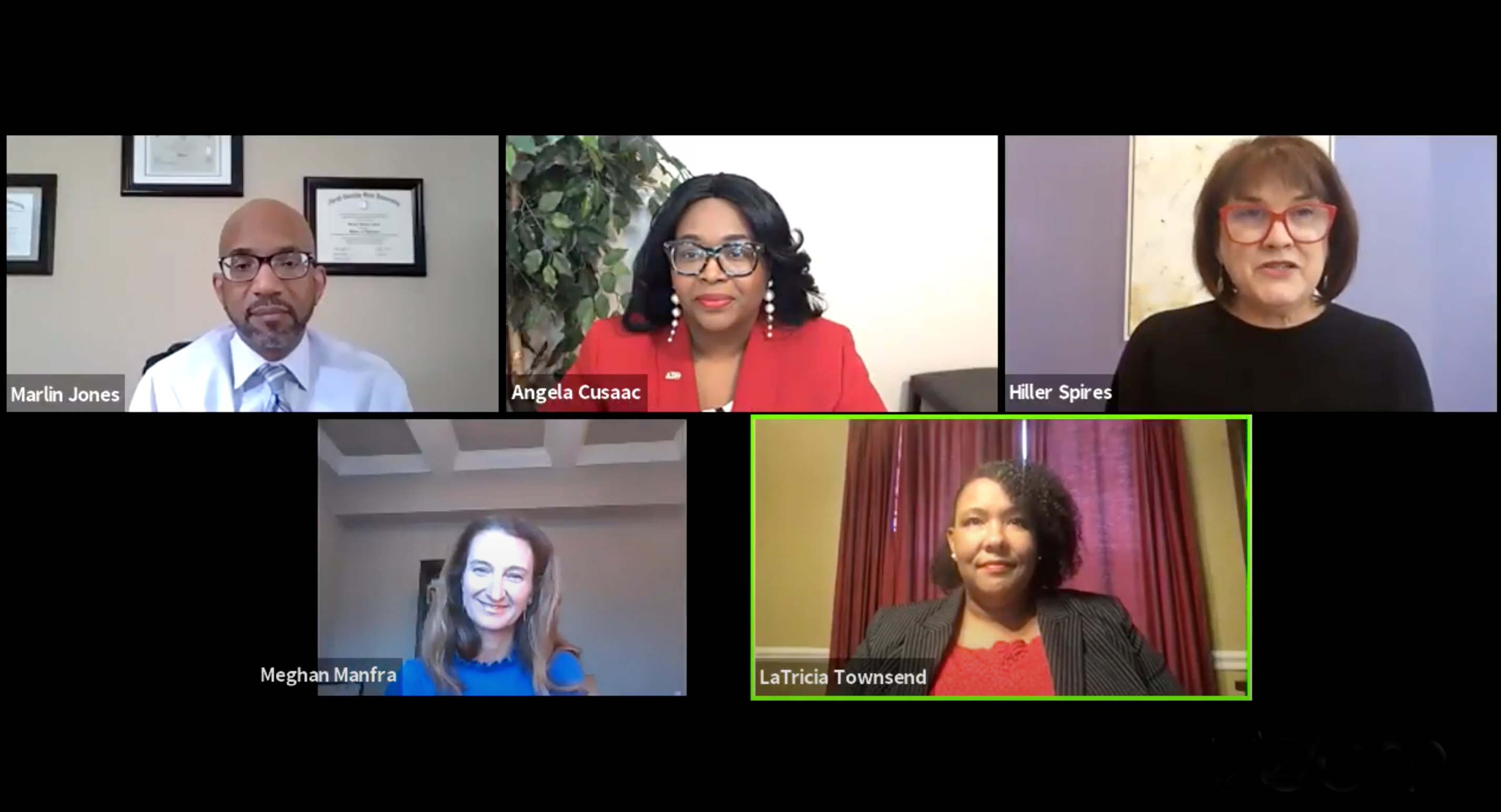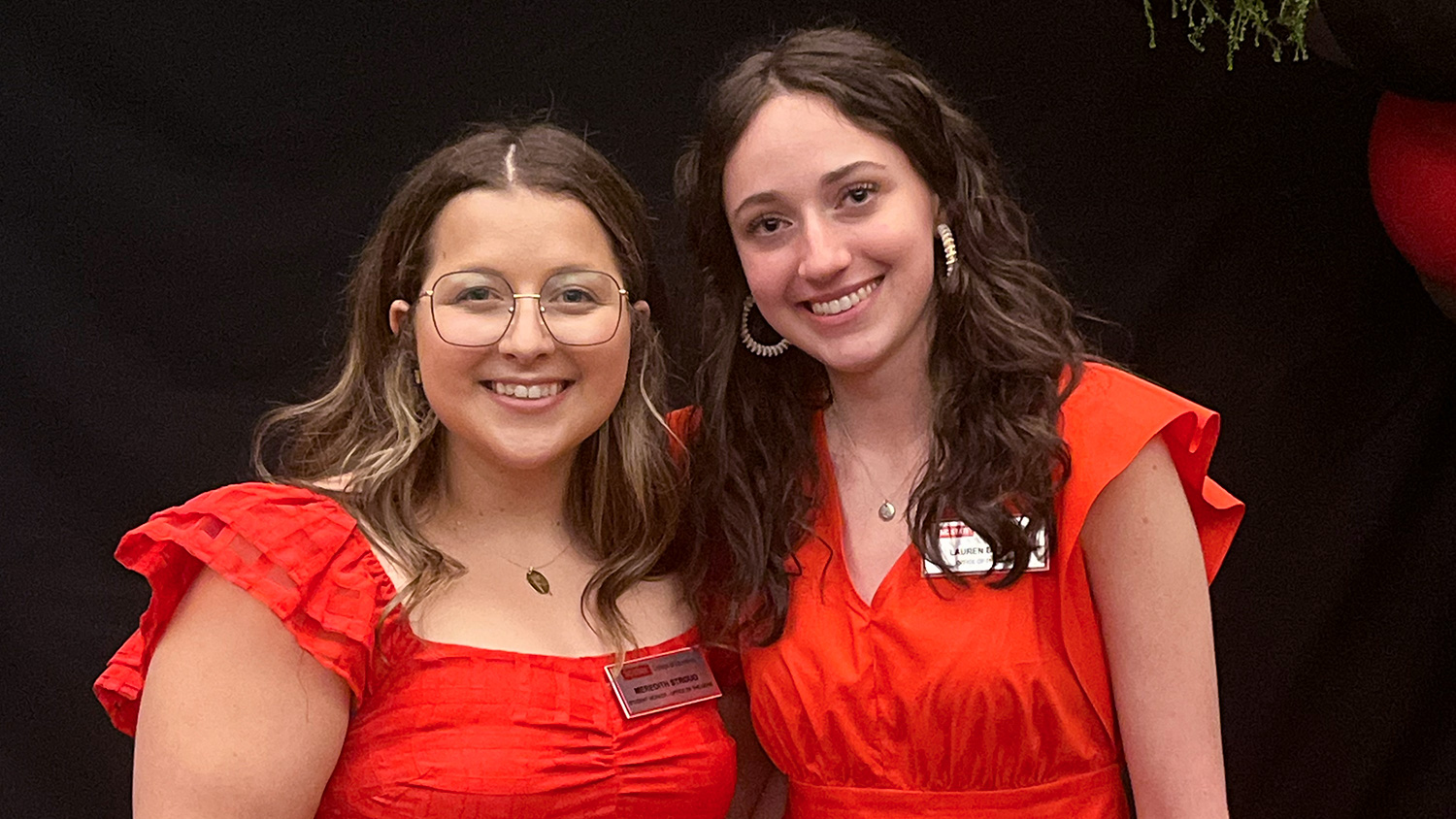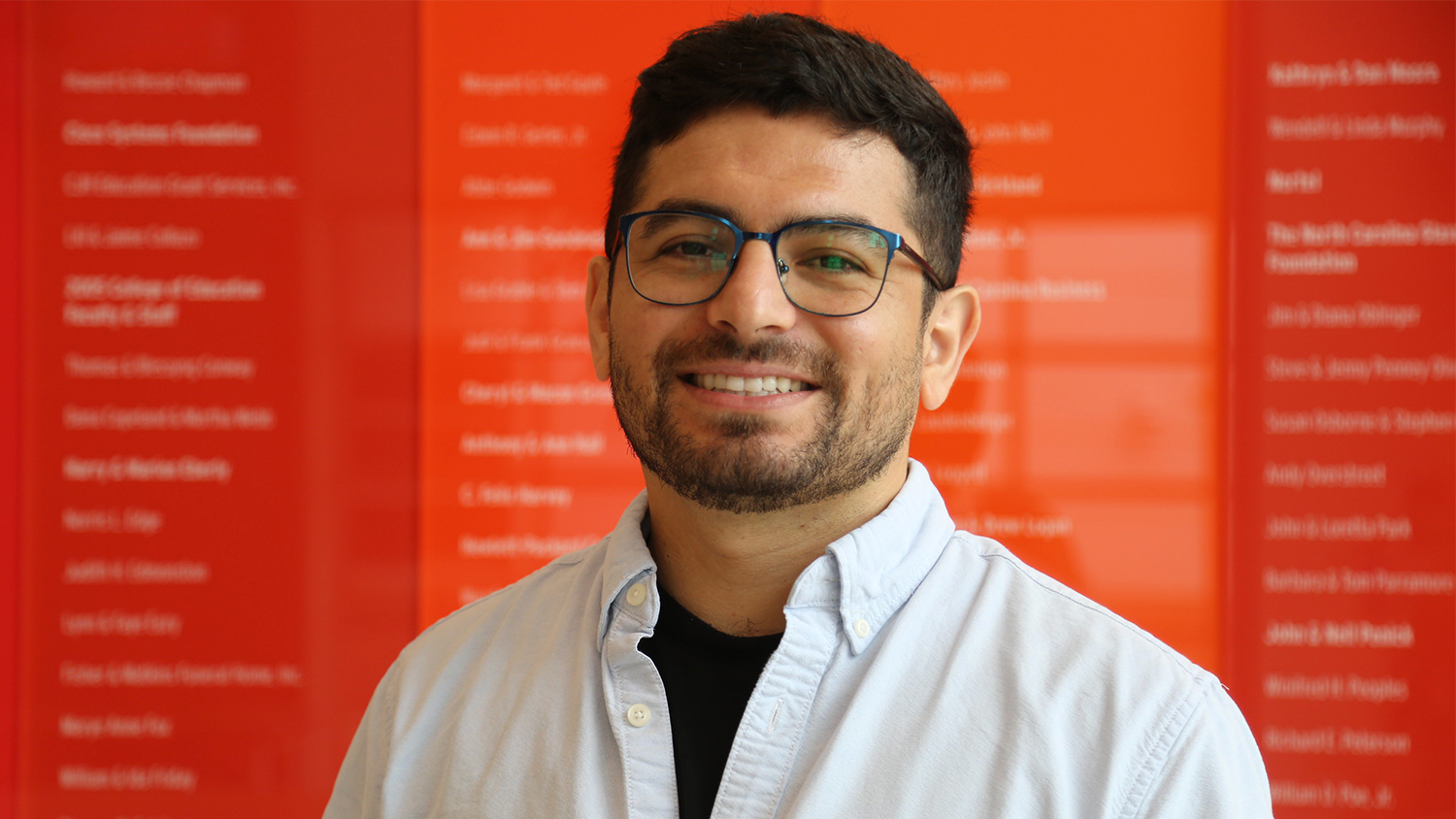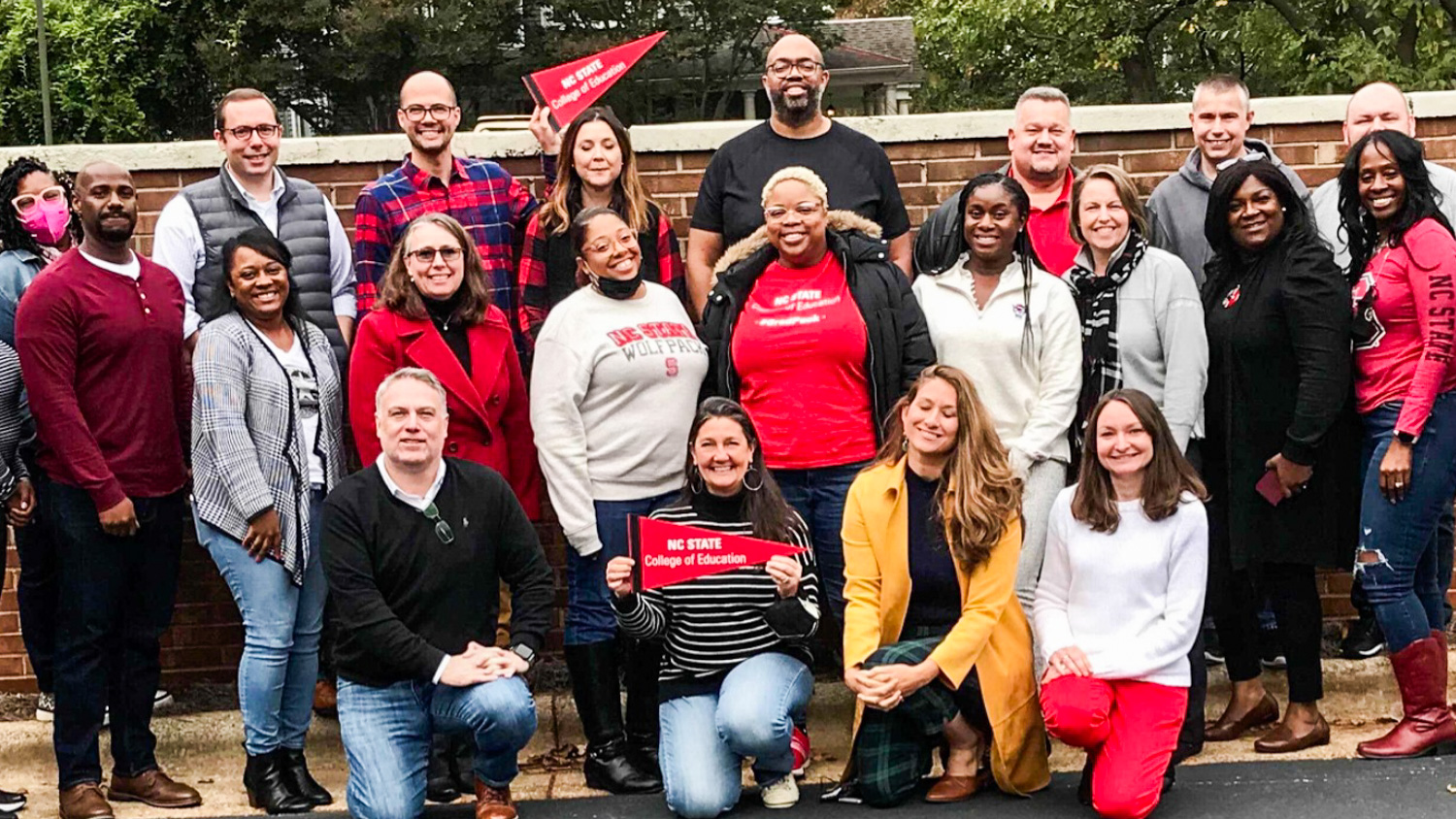College of Education Faculty, Alumni Offer Advice on How to Discuss Violence at U.S. Capitol with Students

As the world watched the violent attacks at the U.S. Capitol Building unfold Jan. 6, many educators were left wondering, “What does teaching require of us in this moment?”
That question was one of several explored by a group of panelists featuring teachers, leaders and researchers during the “Responding to Insurrection: How Do We Talk with Students?” webinar hosted by the Friday Institute for Educational Innovation, part of the NC State College of Education, on Jan. 14, 2021.
“We know, as educators, we cannot avoid these conversations,” said Friday Institute Executive Director and College of Education Associate Dean Hiller Spires, Ph.D. “No matter what our context is we all have the same obligation, that is to uphold a democratic education, to engage learners in critical thinking and conversations and to prepare them as contributors to a healthy, inclusive society.”
Over the course of the one-hour event, College of Education Associate Professor Meghan Manfra, Ph.D., 2020 N.C. Council for the Social Studies Teacher of the Year Marlin Jones ‘20MED, N.C. Department of Public Instruction Director of Federal Program Monitoring and Support LaTricia Townsend ‘05MSA ‘13EDD, and Vance County assistant principal intern Angela Cusaac, M.Ed, shared their experiences and offered advice to help educators productively discuss unfolding events in the classroom.
Below are six takeaways from the discussion.
Help Students Find Reliable Sources of Information
- “Misinformation played a role in the event and in the way students may interpret it, and with social media it’s easier to retreat into an echo chamber. Students have a hard time finding authentic sources on the internet…We can begin to chip away with this through media literacy, including helping students engage in what we call digital forensics, like beginning to do a reverse image search or read laterally.” — Meghan Manfra, Ph.D., Associate Professor of Social Studies Education
- “The first thing I did [with students on Jan. 7] is we went to the National Archives and we read what the Constitution said about what was supposed to happen on Jan. 6 and what powers people had and what they could and could not do. I wanted kids to see it for themselves so they could make their own conclusions.” — Marlin Jones, social studies teacher at Broughton High School, in Raleigh, and 2020 N.C. Council for Social Studies Teacher of the Year
Create a Safe Space for Students
- “The first thing we need to do is check out hearts as educators. Check some of our baggage at the door, check our views at the door. Make sure things are fact-centric, but allow students to express how they feel with you as a mediator. Set ground rules to ensure a safe space and make sure students know that it’s OK to disagree, but you’re disagreeing with content and ideas, not with people.” — LaTricia Townsend, N.C. Department of Public Instruction Director of Federal Program Monitoring and Support
- “Make sure that the values in your classroom are succinct and that we let our students know that just being a good human is really important and, if they don’t take anything else, be kind.” — Angela Cusaac, former teacher and current Vance County assistant principal intern
Understand Your Own Emotions
- “You have to have the courage to have the conversations at every level and make sure that we’re prepared to have those conversations, that we’re not afraid to step out and talk and let students freely express themselves.” — Cusaac
- “Teachers need to process their own emotions first. You can’t go in until you know how you feel and can articulate feelings in a way that is supportive can help students. If you can’t even have the conversation without getting upset, you’re not going to be in a position to help your students.” — Jones
Rely on Colleagues for Support
- “Have an educational support team, whether that’s a professional learning community or a friend, whether that’s a colleague, you need to be able to talk about what types of things you want to do in the classroom. Colleagues have to have a support mechanism around them to help them. You can’t do this by yourself. You can’t decide this is going to be a one-woman or a one-man show or you’re going to burn out. You have to have a lot of support and you have to have someplace to vent.” — Jones
- “Don’t think you have to do this alone. We have a community support system and experts in different areas. Reach out to those people if you don’t understand something.” — Cusaac
Be Prepared for Discussions in Advance
- “The day this happened, I called my best friend who teaches middle school and the first question I asked was ‘what are you going to teach tomorrow?’… We began to reach out to our other colleagues and we were able to talk through how to address this. What happened was that I had about 20 people working on this problem that afternoon. By the time I woke up Thursday morning, I had my lesson plan and I had several other lesson plans that I was able to look at and I was able to pull the best out of each and use that in my classroom.” — Jones
- “Do your research, don’t go into the conversation blind, make sure that you know exactly what’s happening, that you’ve checked all your bais at the door and that you are able to engage in those conversations and facilitate those conversations in a manner in which you’re able to speak your truth and stand in authenticity.” — Cusaac
Know Your Students
- “You have to focus on building relationships with students from the beginning. If you haven’t taken the time to get to know your students, you’re going to have a hard time trying to have a conversation with them because you’re not going to know how they’re going to respond to the stimuli. I think that’s a recipe for disaster,” Jones said. “When you spend time getting to know your students then you know who’s going to have a negative reaction, you may know who is going to possibly say something that may be inappropriate and you’re going to know how to respond to that.” — Jones
- “Make sure the relationships are being built initially so when you have to start withdrawing some of that emotional currency, you’re able to.” — Townsend
- Categories:


